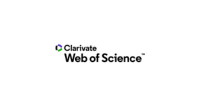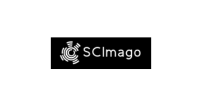Avaliação da capacidade imunoestimulante e da estabilidade de um probiótico empregado em rações de cães
DOI:
https://doi.org/10.5380/avs.v12i2.9905Palavras-chave:
Bacillus cereus, Bacillus subtilis, cães, extrusão, Probiótico, extrude dog food, ProbioticResumo
Foi avaliado um probiótico termo-resistente,
liofilizado e encapsulado, composto de Bacillus
cereus (ATCC 9634) 4,0 x l08 UFC/g e Bacillus subtilis
(CCT 3131) 4,0 x l08 UFC/g, incorporado em
uma ração comercial para cães com o objetivo de
avaliar sua viabilidade durante o período de um
ano, e o seu efeito imunoestimulante quando fornecido
às dietas. No primeiro experimento, foi avaliada
a sobrevivência das bactérias quantitativamente
e qualitativamente depois de 3, 6, 9, 12 meses de
estocagem. No segundo ensaio, foram utilizados 10
cães (machos e fêmeas) com peso variando de 10
a 30 kg, sem raças definidas, divididos em dois grupos
de cinco animais cada. Todos os animais sem
título sorológico anti-leptospira, foram vacinados
contra os sorovares canicola e icterohaemorrhagiae
no início do experimento e mantidos em canis individuais
durante 60 dias. Os animais do grupo I
receberam ração extrusada acrescida de Probiótico
TR e, os animais do grupo II receberam a mesma
ração extrusada sem o Probiótico TR, sendo mantidos
como controles. Os títulos de anticorpos contra
os sorovares canicola e icterohaemorrhagiae foram
determinados antes da vacinação, no 15o, 30o e 60o
dia após, utilizando a reação de soro-aglutinação
microscópica com antígenos vivos. Pelos resultados
da contagem total de esporos nas rações extrusada
e farelada, o probiótico TR é notadamente estável
por período superior a 12 meses. O estímulo
da resposta imune foi verificado pela elevação dos
títulos dos animais do grupo I no 15o, 30o e 60o dia
após a vacinação. Este fato é atribuído à ingestão
do probiótico TR, uma vez que entre os animais que
não receberam ração com probiótico TR (grupo II), a resposta imune foi menor e instável.
Downloads
Publicado
Como Citar
Edição
Seção
Licença
Autores que publicam nesta revista concordam com os seguintes termos:
- Autores mantém os direitos autorais e concedem à revista o direito de primeira publicação, com o trabalho simultaneamente licenciado sob a Creative Commons - Atribuição 4.0 Internacional que permite o compartilhamento do trabalho com reconhecimento da autoria e publicação inicial nesta revista.
- Autores têm autorização para assumir contratos adicionais separadamente, para distribuição não-exclusiva da versão do trabalho publicada nesta revista (ex.: publicar em repositório institucional ou como capítulo de livro), com reconhecimento de autoria e publicação inicial nesta revista.
- Autores têm permissão e são estimulados a publicar e distribuir seu trabalho online (ex.: em repositórios institucionais ou na sua página pessoal) a qualquer ponto antes ou durante o processo editorial, já que isso pode gerar alterações produtivas, bem como aumentar o impacto e a citação do trabalho publicado.













